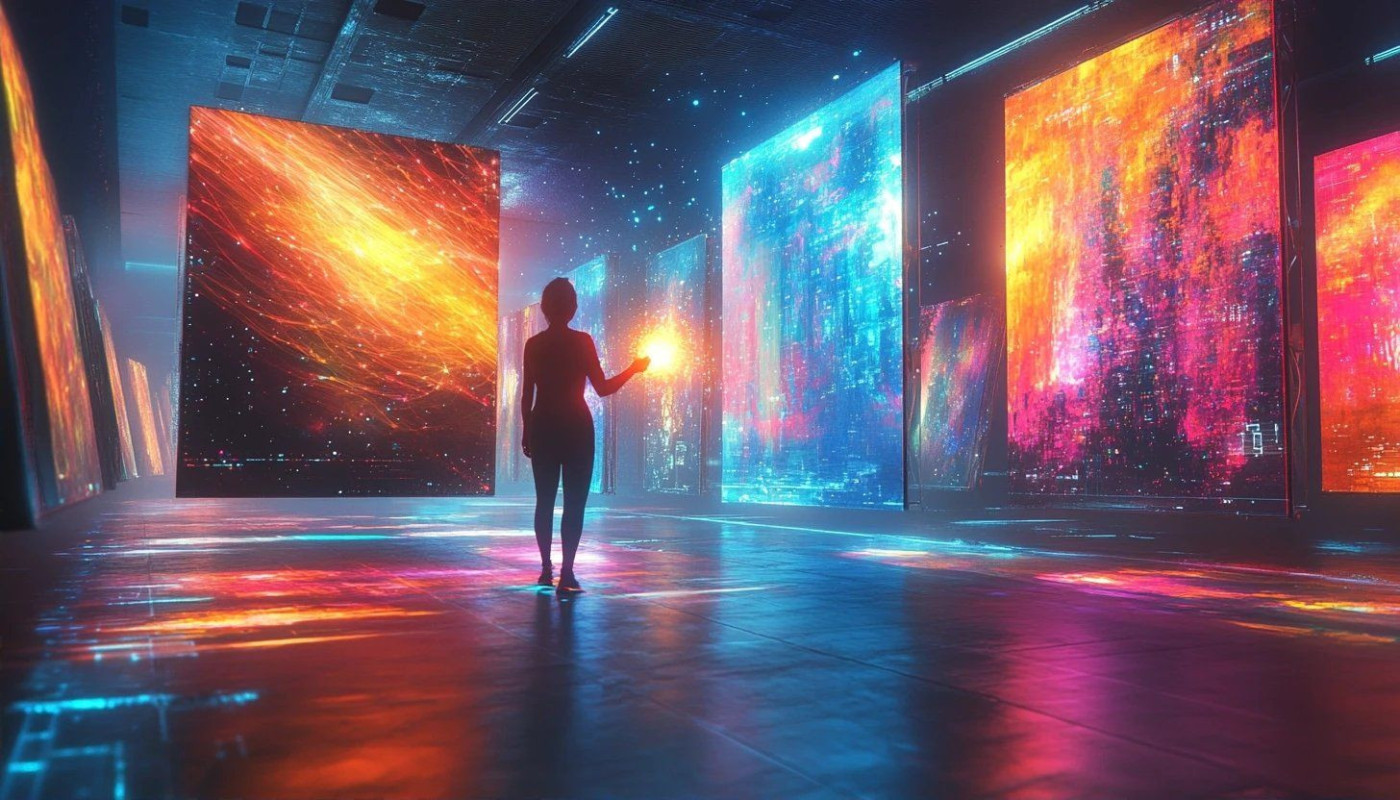Table of contents
In an era where technology continues to evolve at an unprecedented pace, one of the most exciting developments is the advent of virtual reality. This innovative technology promises to revolutionize the world of entertainment, completely transforming our leisure experiences. No longer confined to the two-dimensional screens of our televisions or computers, we now have the opportunity to immerse ourselves in a three-dimensional digital world tailored to our preferences and desires. Virtual reality is not only changing the way we consume entertainment, but also how we perceive it. Let's dive into this fascinating topic and explore how virtual reality is changing the face of entertainment.
Understanding the Concept of Virtual Reality
The term "virtual reality" refers to a digitally created environment that provides an immersive experience for the user. It is a technological breakthrough that allows people to interact in a simulated environment, creating a sense of being physically present in a non-physical world. This concept of experiencing a "digital world" originated in the mid-20th century, and has since seen exponential growth and development.
The immersive experience offered by virtual reality is achieved through sensory stimulation, predominantly sight and sound. This allows users to perceive the digital world around them as if it were real, making interaction in the simulated environment feel natural and intuitive. Furthermore, advancements in this technology have led to the implementation of "haptic feedback", a feature that provides tactile responses, enhancing the overall virtual experience.
Virtual reality's transformative potential is immense and can change the way we entertain, educate, and even conduct business. Despite the challenges in making this technology accessible to all, its benefits are substantial, making it an important field of study and development in the tech industry.
The Impact of Virtual Reality on Gaming
The transformation of the gaming industry through virtual reality has been significant. Virtual reality gaming has revolutionized the way games are played and enjoyed. It offers an immersive gaming experience by simulating a three-dimensional, computer-generated environment that can be explored and interacted with by a gamer. A key feature of this technology is "3D modeling", which contributes largely to creating a detailed and realistic environment. This aspect of game development has enhanced the players' gaming experience by offering a sense of actual presence within the virtual world. In essence, the advent and integration of virtual reality technology have elevated gaming to new heights of realism and engagement.
Virtual Reality in Movies and Television
The realm of movies and television has seen a revolutionary transformation with the advent of virtual reality. One of the key areas where this technology is making waves is in the creation of immersive film experiences. Using virtual reality cinema, filmmakers are breaking barriers of traditional storytelling, providing viewers with a highly engaging, 360-degree video experience that transcends the usual flat screen. The television industry is also not far behind, exploring ways to utilize this technology to enhance their content and offer unique viewing experiences. The emergence of 3D movies is a testament to this trend. With the help of virtual reality, 3D films are becoming more engrossing, transporting viewers into the heart of the action. Cinematic virtual reality has indeed become a game-changer, promising to redefine the future of entertainment.
Virtual Reality in Music and Live Performances
Virtual reality has made a significant impact in numerous sectors, not least in the music industry. With the advent of virtual reality concerts, audiences are granted an unprecedented, immersive music experience that transcends traditional boundaries. Instead of being passive spectators, the audience is thrust into the heart of the performance, interacting with the music and the artists on a far deeper level. The use of spatial audio in these performances is a transformative factor. This technology allows for sound to come from all directions, mirroring the way we hear in real life and thus, bolstering the immersive quality of the event.
Virtual reality is also revolutionizing the concept of a live performance. Now, fans can enjoy their favorite artists' concerts from the comfort of their homes, yet feel as if they are right there in the crowd. This innovative technology is redefining the very experience of live music, offering an incredibly realistic and engaging alternative to physical attendance. The music industry is capitalizing on this trend, with numerous artists and production companies exploring the potential of VR performances to reach a wider, virtual audience. This is only the beginning, with many seeing virtual reality as the future of live music.
The Future of Entertainment with Virtual Reality
As we ponder the "future of entertainment", it becomes increasingly clear that virtual reality advancements are on the cusp of reshaping the entire entertainment sector. The "entertainment industry evolution" is charging forward with a myriad of "technology trends," expressly in the domain of "immersive technology". Augmented reality, an advancement in technology that provides an interactive experience of a real-world environment, is intersecting with virtual reality to create immersive experiences that were once the stuff of science fiction. These advancements could potentially offer audiences hyper-realistic taste of movies, music concerts, and even gaming, impacting the overall user experience and interaction. The possibilities are endless, and it is exciting to envision how these state-of-the-art technologies will continue to revolutionize our consumption and perception of entertainment.
















